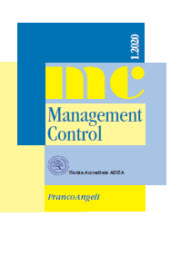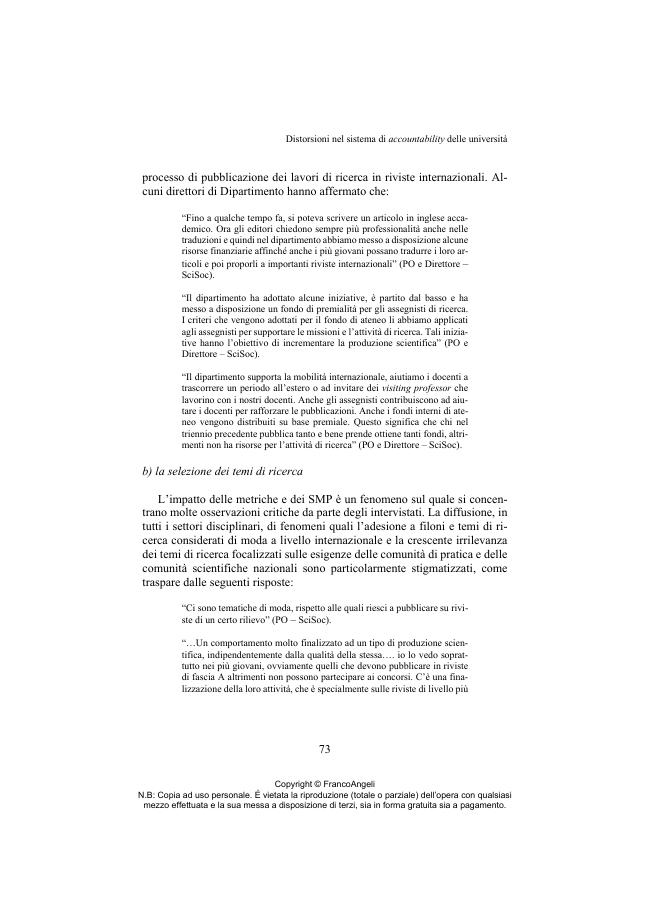Distorsioni nel sistema di accountability delle Università : analisi di un caso
59-86 p.
The purpose of this study is to analyze how academics cope with the new audit culture in Higher Education (HE) and its effects on university's accountability. The study aims to analyze, especially through the perception of department heads, how performance measurement systems (PMSs) are influencing internal choices and the behavior of academics. Department heads, in fact, represent a central figure in university governance and organization because of the combined managerial and academic role.
The research is based on a case study of an Italian public university selected because of the higher weight of research performance indicators in its PMS compared to other universities. Eight out of fourteen departments were selected, and interviews were conducted with department heads and academic staff. The study provides evidence of the impact of PMS on academics' behaviors. Findings highlight a high degree of criticism about PMS effectiveness and a different impact on academics' behaviors. Furthermore, the study provides evidence of a specific gap between theory and practice. The literature has underlined the importance of the active involvement of professionals in defining metrics, while the case analysis suggests that department heads have been passive. The lack of involvement, therefore, favors the developent of opportunistic behaviors and gaming that tend to increase the resistance to organizational change processes. [Publisher's text].
Is part of
Management Control : 1, 2020-
Articles from the same issue (available individually)
-
Information
ISSN: 2239-4397
KEYWORDS
- Higher education, Performance measurement systems, University, Ac-countability, Professionals, Academic behavior



